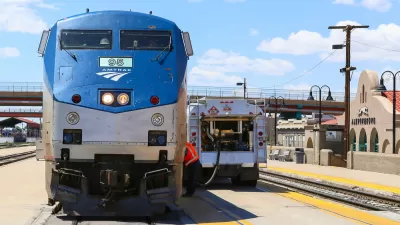Fracking bans passed overwhelmingly in the Front Range cities of Boulder, Fort Collins and Lafayette but appeared to be losing by a mere 248 votes in Broomfield as of 11 p.m. on election night.
Alison Noon provides election updates from The Denver Post as of 11 p.m. on Nov. 5. Voters in Boulder extended the city's existing fracking moratorium for five years by approving Boulder Ballot Question 2H: Oil and gas with 77 percent of the vote. Lafayette Ballot Question No. 300: Gas and oil, an outright ban on fracking, passed with 58 percent. Fort Collins Ballot Issue 2A, a five-year moratorium, won with 55 percent of the vote.
The passage of the three ballot measures is particularly significant when one looks at how little money the proponents spent compared to the opposition.
Colorado Oil and Gas Association opened its wallet wide to oppose all of the anti-fracking measures, spending $878,120 on city-specific campaigns by Halloween. Anti-fracking groups raised just over $26,000 in the same time.
While it was not yet known whether the energy industry would litigate the issue as they did with the Longmont ban, "Gov. John Hickenlooper says he won’t tolerate cities and towns that ban oil and gas drilling within their borders and he promises to take them to court," according to a CBS4 report on Feb. 26.
David J. Unger of the Christian Science Monitor writes that the ballot measures are a sign of the greater debate in Colorado and throughout the country about the drilling process known as fracking. It "is highly symbolic, and it comes just months after massive floods spilled tens of thousands of gallons of oil and gas condensate in northwest Colorado. What happens in Colorado may serve as a litmus test for the oil and gas industry, as fracking continues to spread across the U.S."
FULL STORY: Sides square off over $900,000 spent on Colorado anti-fracking measures

Planetizen Federal Action Tracker
A weekly monitor of how Trump’s orders and actions are impacting planners and planning in America.

Maui's Vacation Rental Debate Turns Ugly
Verbal attacks, misinformation campaigns and fistfights plague a high-stakes debate to convert thousands of vacation rentals into long-term housing.

San Francisco Suspends Traffic Calming Amidst Record Deaths
Citing “a challenging fiscal landscape,” the city will cease the program on the heels of 42 traffic deaths, including 24 pedestrians.

Defunct Pittsburgh Power Plant to Become Residential Tower
A decommissioned steam heat plant will be redeveloped into almost 100 affordable housing units.

Trump Prompts Restructuring of Transportation Research Board in “Unprecedented Overreach”
The TRB has eliminated more than half of its committees including those focused on climate, equity, and cities.

Amtrak Rolls Out New Orleans to Alabama “Mardi Gras” Train
The new service will operate morning and evening departures between Mobile and New Orleans.
Urban Design for Planners 1: Software Tools
This six-course series explores essential urban design concepts using open source software and equips planners with the tools they need to participate fully in the urban design process.
Planning for Universal Design
Learn the tools for implementing Universal Design in planning regulations.
Heyer Gruel & Associates PA
JM Goldson LLC
Custer County Colorado
City of Camden Redevelopment Agency
City of Astoria
Transportation Research & Education Center (TREC) at Portland State University
Jefferson Parish Government
Camden Redevelopment Agency
City of Claremont



























